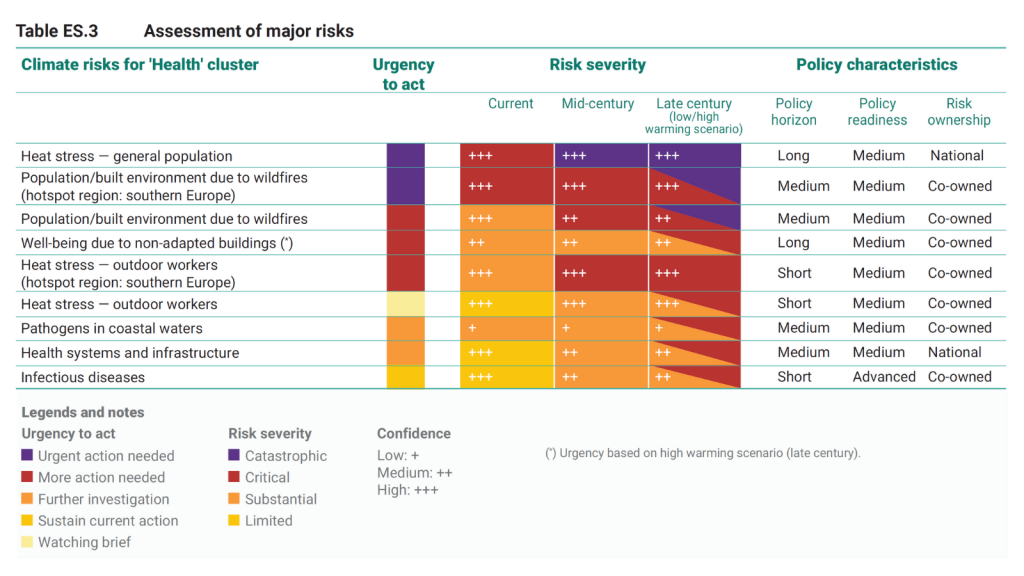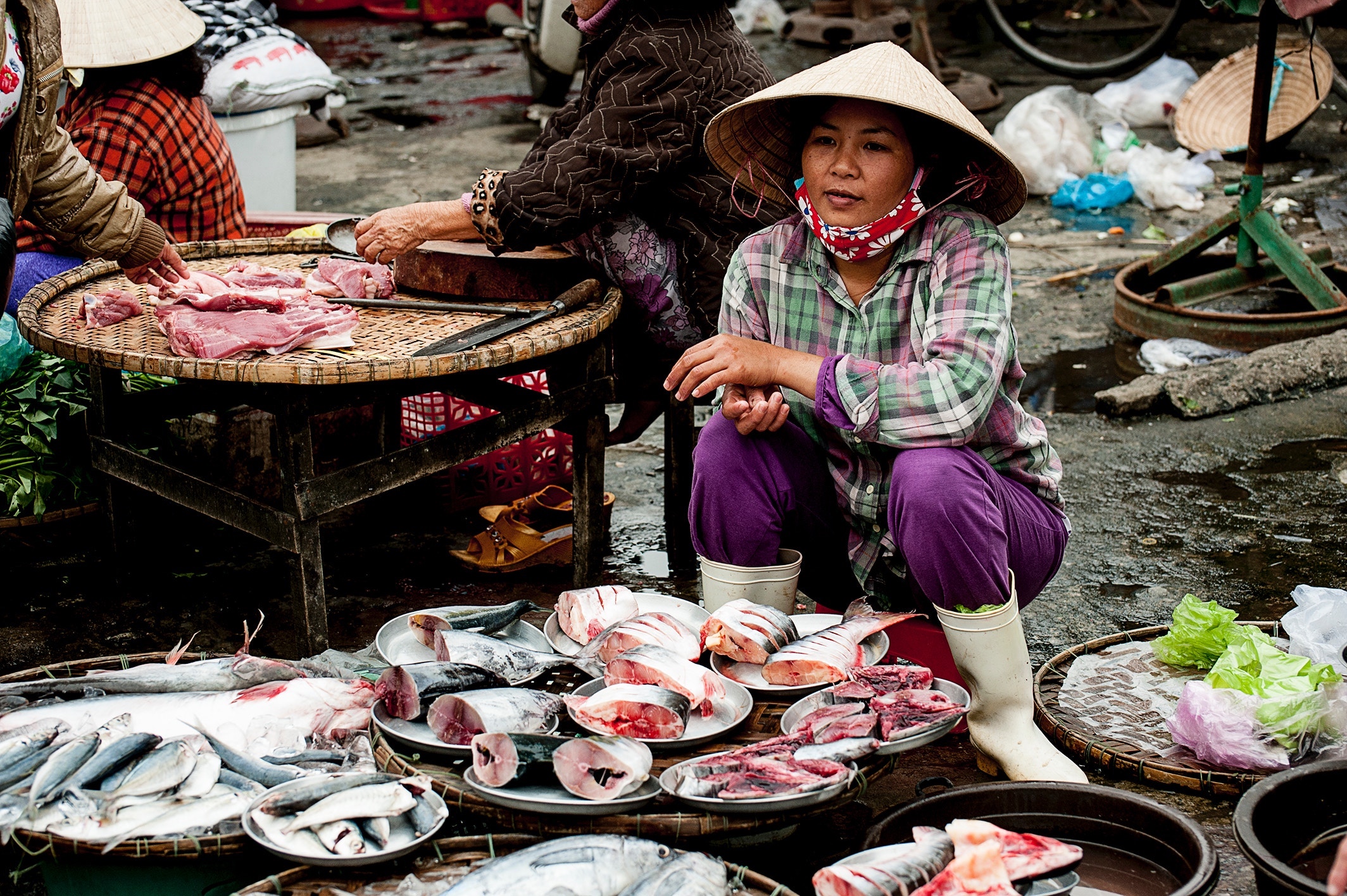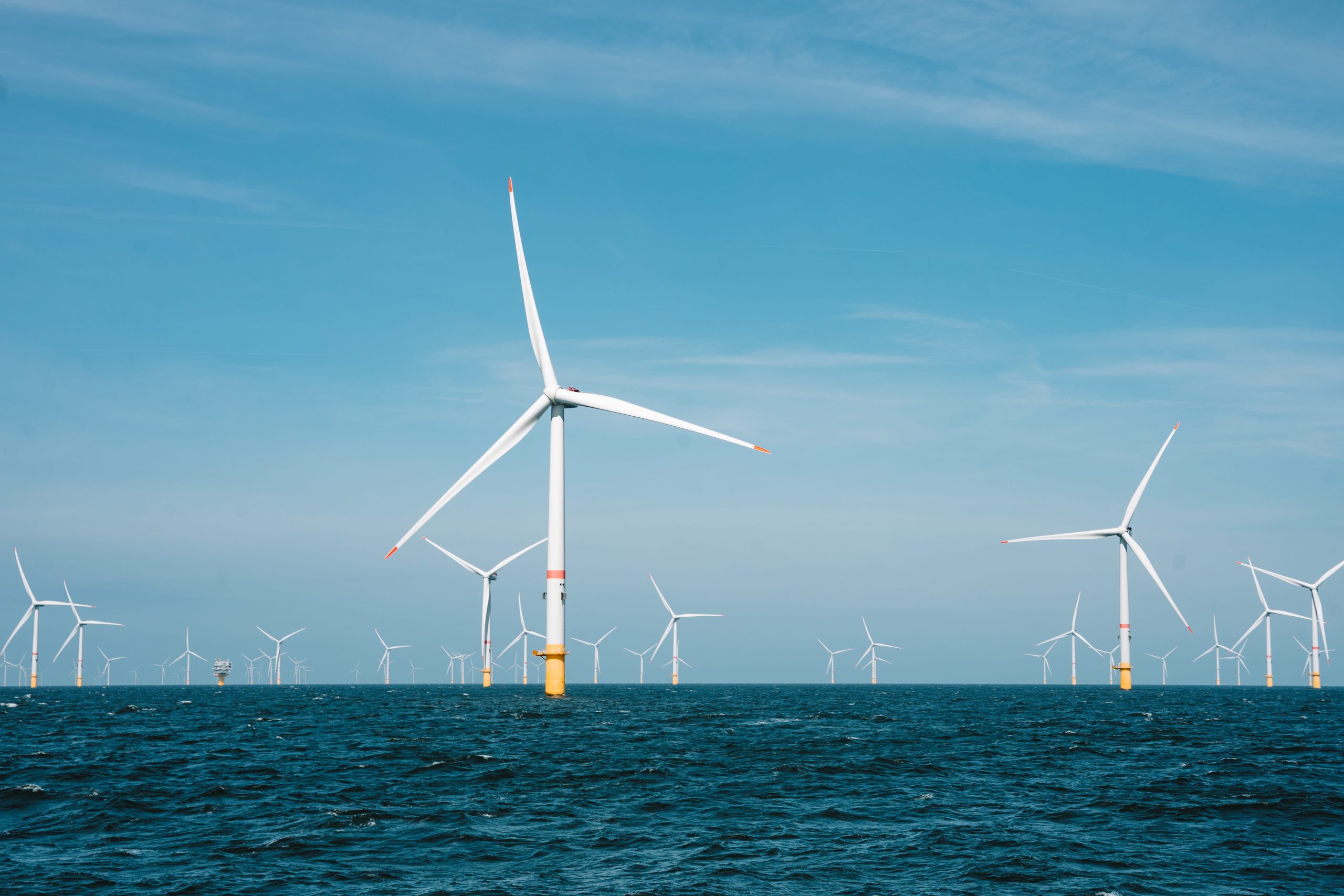Europe is the fastest-warming continent in the world. Extreme heat, drought, wildfires, and flooding, as experienced in recent years, will worsen even under optimistic global warming scenarios and affect living conditions throughout the continent. These events, combined with environmental and social risk drivers, pose major challenges throughout the continent and public health is among the policy areas that require urgent action, underlines the recent European Climate Risk Assessment (EUCRA). The assessment – the first ever of its kind – identifies 36 major climate risks for Europe within five broad clusters: ecosystems, food, health, infrastructure, and economy and finance.
Human health is impacted in many ways by climate change, both at the individual level and through systemic risks to the health system. Climate risks to health are most severe for vulnerable and disadvantaged population groups, such as children, older people, persons with disabilities, and those who are immuno-compromised or have other pre-existing medical conditions. Among the others, heat is the largest and most urgent climate hazard for human health, affecting different population groups in different ways. Extreme heat is becoming increasingly common, exposing a large share of the population to heat stress, particularly in southern and western Europe. The record-hot summer of 2022 has been linked to between 60,000 and 70,000 premature deaths in Europe, despite considerable investments in heat-health action plans.

“The most immediate concern is the heat stress that, combined with Europe’s ageing population, makes it very challenging for us,” confirms Shouro Dasgupta, a researcher at CMCC, lecturer at Università Ca’ Foscari in Venice, and one of the authors of the EUCRA. “But there is another issue. Europe has traditionally been a cooler climate region so its houses, generally, have been designed to track heat in. But now, with heatwaves, the design of our buildings often works against us.” Prolonged droughts are also increasing with climate change. This can lead to acute crises, such as widespread wildfires, critical infrastructure failures, blackouts, and major health and economic impacts. “Over the last few years, we have also observed more frequent and intense wildfires, especially in Spain and Portugal. And wildfires are associated with multiple risks to human health,” explains Dasgupta.
Warmer temperatures extend the pollen seasons – affecting people with allergy-related problems – and facilitate the northward movement of disease vectors and their spread to higher elevations. Southern Europe is now warm enough for mosquitoes to transmit formerly tropical diseases such as Chikungunya, Dengue and West Nile fevers and tick-borne infections. At the same time, we should better prepare to counter outbreaks of vector- and water-borne diseases associated with extreme weather conditions. “Our immune system, as well as pathogens detection systems are not equipped to deal with new and emerging pathogens that are now more evident due to climate change,” continues Dasgupta. Moreover, the COVID-19 pandemic revealed that most health systems are not equipped to deal with acute shocks. “With more and more heat-related morbidity and mortality, more emergencies, more people showing up in emergency rooms, more people visiting their general practitioner, health systems across Europe are finding it challenging to deal with climate change-induced diseases,” adds the scientist.
Better prepared
Considering the climatic variability within and among EU countries, as well as the different types of national health systems, strategies to reduce climate health risks have to be tailored. In addition, health policies are primarily the responsibility of member states. “What needs to happen is that the EU supports many of these health systems, especially in the context of assessments, and how to prepare for the next climate change induced disasters. Several policies are already in place from the European Union and the European Commission, such as the EU4Health programme. Moreover, following the COVID-19 pandemic, the Health Emergency Preparedness and Response Authority (HERA) was established,” says Dasgupta. The HERA aims to prevent, detect and rapidly respond to health emergencies. These kinds of actions are extremely important in the context of climate change too.
Returning to EUCRA, the document identified, for the first time, impacts on the labour force as a key risk for Europe that requires immediate response. Europe has a rapidly ageing population, which is reflected in the labour force as well. Indeed, almost a third of European farmers are 50 years old and above. “Farmers are one of the most exposed and vulnerable working groups to climate change. During the months from June to September, people can not work anymore in the fields during the hottest hours of high risk days. The European Agency for Safety and Health at Work (EU-OSHA) needs to be more proactive to protect workers both outdoors and indoors. This will need measures such as early warning systems for the workforce, especially in southern and Mediterranean countries,” explains Dasgupta.
Behavioural change is a key aspect of climate change adaptation. However, effective adaptation depends on whether people consider the risk of climate change sufficiently serious and whether they think they are capable of taking effective adaptation action.
“Absolutely. Policies should be coupled with campaigns of education to make people more aware about the risks. For example, during a heatwave, governments should nudge people to drink more water, stay inside if possible, wear protective clothing if they work outside, and take more frequent breaks. But also promoting other behavioural changes like eating more plant based food and less meat and so on” concludes the scientist.






